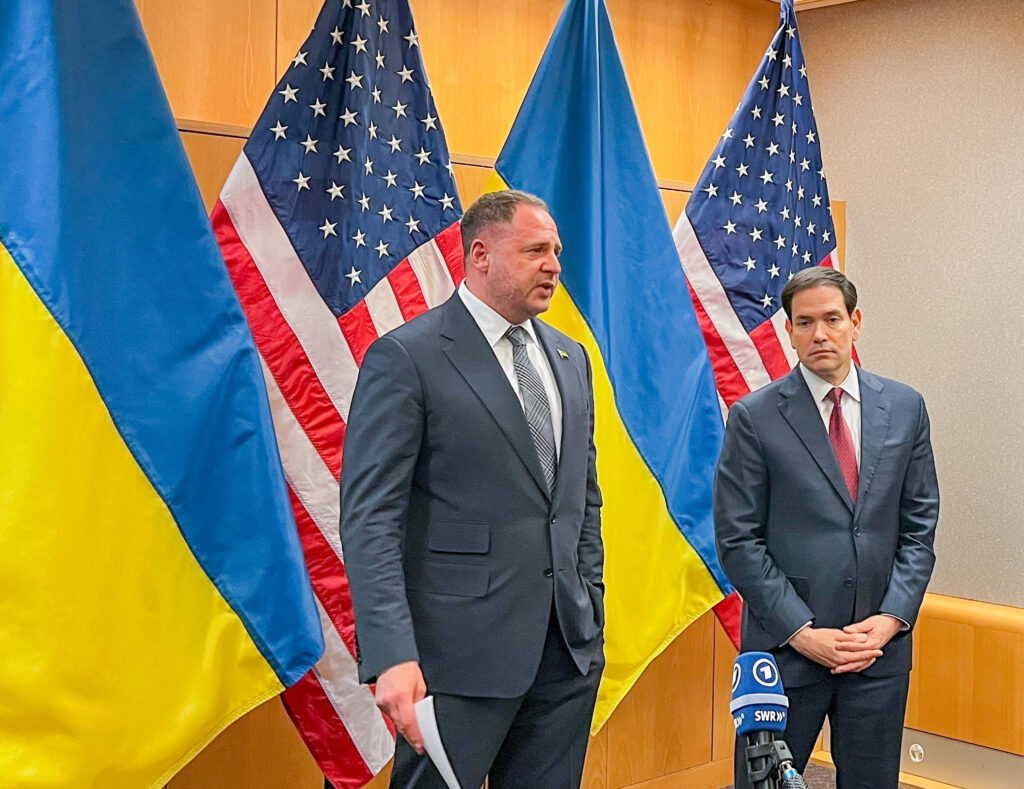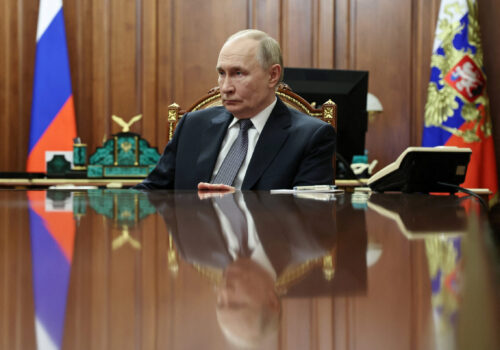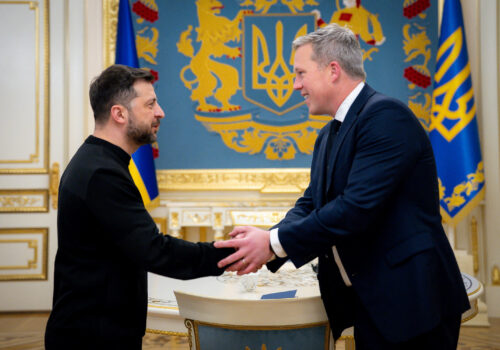A new attempt by the United States to broker peace between Russia and Ukraine has sparked fresh hopes for an end to the largest European war since World War II, while also drawing accusations of echoing key Kremlin demands. Launched late last week, this peace initiative has provoked a particularly strong reaction from some of US President Donald Trump’s colleagues within the Republican Party.
Trump’s team is now working with counterparts in Ukraine and the rest of Europe to agree on a potential common framework for a settlement with Russia. Despite tensions between Republicans in Congress worried by White House pressure on Kyiv, US efforts to end the war will only be strengthened by a more activist Congress that resumes legislating on foreign policy.
The original US plan envisioned a peace built on twenty-eight points. These included a cap on Ukraine’s armed forces, a ban on Ukraine joining NATO, and the surrender of some of the most heavily fortified land in eastern Ukraine to Moscow.
The proposal drew criticism from a number of congressional Republicans. “Those who think pressuring the victim and appeasing the aggressor will bring peace are kidding themselves,” wrote Senator Mitch McConnell, who likened the plan to “a capitulation like [former US President Joe] Biden’s abandonment of Afghanistan.”
“This so-called ‘peace plan’ has real problems, and I am highly skeptical it will achieve peace,” said Roger Wicker, chairman of the Senate Armed Services Committee.
A Wall Street Journal report that Trump would withhold arms sales to Ukraine if Kyiv didn’t accept the proposal by Thanksgiving elicited a rebuke from Rep. Brian Fitzpatrick, who wrote: “Correction: The United States wants Russia’s answer on an unconditional withdrawal of Ukraine by Thursday. This Russian-drafted propaganda must be rejected and disregarded for the unserious nonsense that it is.”
Stay updated
As the world watches the Russian invasion of Ukraine unfold, UkraineAlert delivers the best Atlantic Council expert insight and analysis on Ukraine twice a week directly to your inbox.
Comments from US Vice President JD Vance indicate that the White House has received significant pushback from Republicans in Congress over its recent handling of the Russia-Ukraine peace process. “The level of passion over this one issue when your own country has serious problems is bonkers,” he posted on November 24.
Perhaps the biggest challenge to the Trump administration’s position on Ukraine peace talks has come from Fitzpatrick, who filed a discharge petition to force a vote in the House of Representatives on Russia sanctions once a majority of members have signed on. This is the same mechanism used in 2024 to pressure Speaker of the House Mike Johnson to pass a $61 billion aid package for Ukraine.
A more prominent congressional role in Russia-Ukraine peace efforts would mark a departure from recent trends. At present, 2025 is the first year since the start of Russia’s full-scale invasion that Congress has not passed any legislation to assist Ukraine. From the US-Ukraine minerals deal to shuttle diplomacy in Istanbul and arms sales to NATO, the White House has made it clear that ending the war in Ukraine is Trump’s portfolio.
This helps to explain why the Sanctioning Russia Act, introduced in April 2025 by Senators Lindsey Graham (R-SC) and Richard Blumenthal (D-CT), has gone nearly eight months without a vote despite pledges of support from 85 percent of senators. Originally written to signal strong congressional support for Russia sanctions, the legislation has since undergone technical changes to improve the effectiveness of the sanctions and gain Trump’s approval, according to congressional staff.
Eurasia Center events

Fitzpatrick’s initiative could now change things. The discharge petition, which he says would force a vote on a version of the Sanctioning Russia Act and potentially also the Democrat-led Ukraine Support Act, which includes both sanctions and new military support for Kyiv, could mobilize Republicans uneasy with current peace efforts.
After nearly a year of deferring to Trump to manage a peace process, Republican criticism in Congress is growing. “The President’s appeasement plan to Russia is forcing our hand,” commented Rep. Don Bacon (R-NE), who says he considered resigning from Congress in protest over the recently proposed peace plan.
To force a vote, the discharge petition will require majority support from House members. Most Democrats will likely back the move, though some are privately sharing concerns about granting Trump increased authority to levy tariffs, should that provision remain in the final legislation attached to the petition. A handful of Republicans could push it over the line.
Further action to back Ukraine and pressure Russia is likely to find support among Trump’s base. Fresh polling from the right-leaning Vandenberg Coalition found that only 16 percent of Trump voters agree with the proposal that Ukraine should surrender territory to the Kremlin, while 76 percent support sanctioning Russia.
The reality is that without serious additional pressure on Russia, Putin is unlikely to agree to any of the peace frameworks currently being floated. However, if Congress pushes to enact crippling sanctions, extend military assistance to Ukraine, and codify security guarantees, the Trump administration’s peace efforts could finally bear fruit.
The last few days have shown that Congress is eager to help Trump force Russia to end its war in Ukraine. Capitalizing on the revised peace framework agreed by US and Ukrainian negotiators in Switzerland will now require action from both sides of Pennsylvania Avenue.
Doug Klain is a nonresident fellow at the Atlantic Council’s Eurasia Center. He also serves as deputy director for policy and strategy at Razom for Ukraine, a US-based nonprofit humanitarian aid and advocacy organization.
Further reading
The views expressed in UkraineAlert are solely those of the authors and do not necessarily reflect the views of the Atlantic Council, its staff, or its supporters.

The Eurasia Center’s mission is to enhance transatlantic cooperation in promoting stability, democratic values, and prosperity in Eurasia, from Eastern Europe and Turkey in the West to the Caucasus, Russia, and Central Asia in the East.
Follow us on social media
and support our work
Image: Head of the Office of the President of Ukraine Andriy Yermak and US Secretary of State Marco Rubio, address the media after closed-door talks at the U.S. Mission in Geneva, Switzerland. November 23, 2025. (REUTERS/Emma Farge)





